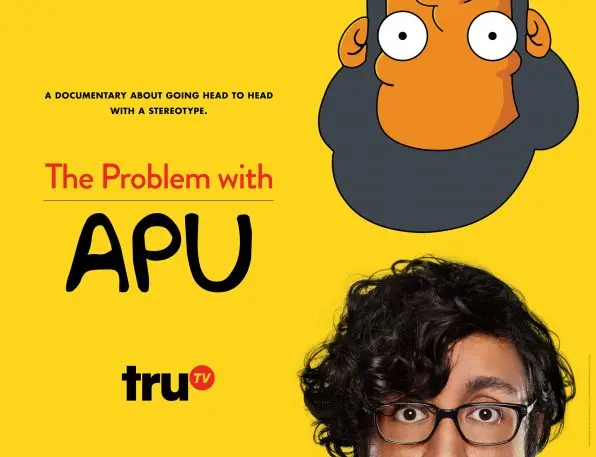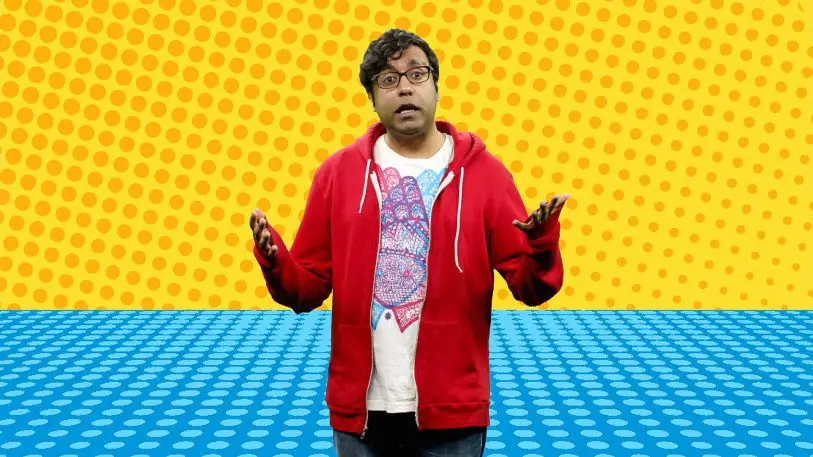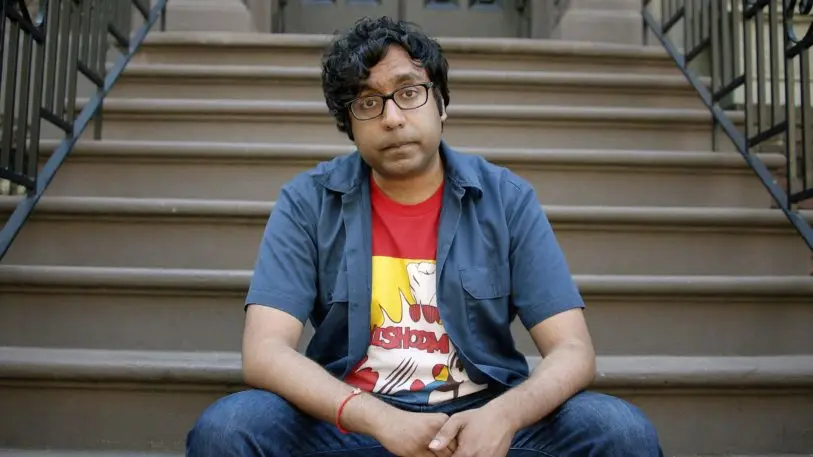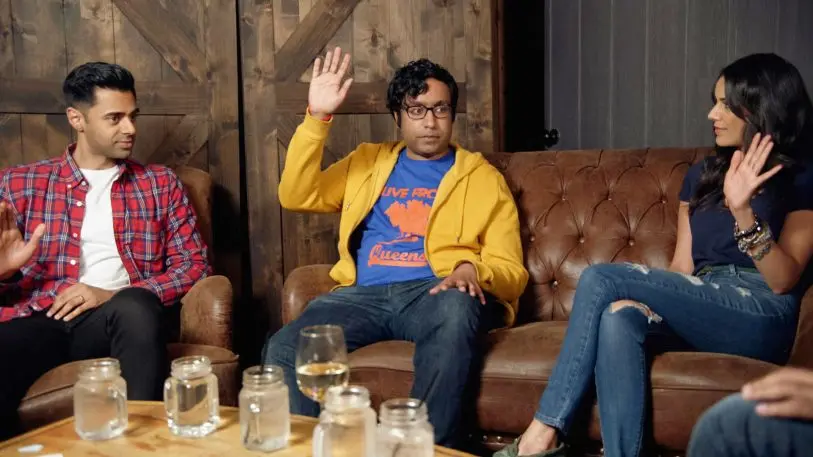Harold and Kumar Go to White Castle was a sadly revolutionary film. The idea of an Asian character and a South Asian character being the two leads in a mainstream weed romp broke new cinematic ground in 2004. One of the stereotypes it shattered, the writers made sure to address it directly within the film. During a scene in which a flock of white dude-bros gives the titular duo some grief, one tormentor adopts an exaggerated accent and drops a pointed “Thank you, come again.” Even in a movie that celebrates the diversity of Indian identity, it’s difficult to escape the shadow of Apu.
The overwhelming iconicness of Apu Nahasapeemapetilon is cemented in the public consciousness. The Hank Azaria-voiced Simpsons character has been a steady Indian presence in the pop culture purview since the show debuted in 1989. In fact, for some people, the convenience store-owning Apu may have been the only Indian character they saw on TV for a very long time. Now one comedian is bringing this disparity to light with a new documentary.

“When Apu first appeared on The Simpsons, I was excited because we didn’t have anybody,” Kondabolu says. “But it was kind of a bummer when I realized that when you only have one thing, that’s what people are gonna throw at you. You have that and Gandhi and that’s pretty much it.”
The needling started for Kondabolu at some point in junior high, and never fully went away. In the first scene of his documentary, The Problem with Apu, which is available to stream on TruTV’s website, an audience member at a show in Denver heckles the comic with Apu’s signature catchphrase. (This show took place just a couple years ago.) It’s not the only kind of heckling he gets, though. The other kind was represented in last summer’s sleeper hit, The Big Sick, when Kumail Nanjiani has a heckler calling him a terrorist. For too many Americans, the major images of Indian culture are 9/11 terrorists and Apu, the harmless cartoon, with nothing in between.
Kondabolu just decided to explore how we got here, through the lens of Apu.

It all started with a segment on the now-defunct TV show, Totally Biased with W. Kamau Bell, which Kondabolu worked on as a writer and correspondent. Bell talked the comedian into writing a piece about the dearth of prominent Indian characters on TV, something he’d talked about off-air many a time. This segment dedicated about two minutes to the retrograde menace of Apu Nahasapeemapetilon. It was enough to spark a steady deluge of hate mail, but also some genuine conversation.
“I decided to make the film because that clip of me on Totally Biased kept getting passed around even when the show got cancelled,” he says. “Like, people were using it in high school and college classrooms. It was being discussed.”

Along the way, Kondabolu learned some surprises, like the fact that the phrase, “Thank you, come again,” was only uttered eight times on the show. Eight times is all it took to etch this line into the popular imagination, and with it the idea that Indian immigrants belong to this one particular context of service.
“I don’t think it’s acceptable–it’s just there,” Kondabolu says. “This form of racism just got grandfathered into The Simpsons in 1989 and has hung around ever since. It’s like how Columbus clearly killed and enslaved tons of people, and yet we celebrate Columbus Day. Even if we got rid of Columbus Day, it still kind of hangs on because it’s in the DNA.”
The culture lately makes Kondabolu feel more hopeful about representation in the future, though. The Big Sick was a hit. Mindy Kaling is starring in a mega-budget adaptation of A Wrinkle in Time. Hasan Minhaj had a hit solo show on Netflix. Aziz Ansari is winning Emmys for co-creating and starring in Master of None. However, there’s only so much hope that he can feel at this moment in time.

In light of other more pressing forms of intolerance, the continued presence of Apu might seem relatively innocuous. Kondabolu doesn’t necessarily want the character killed off of the show, but he wants some form of change–a move away from caricature. He’d like to see Apu get out of the Quickie Mart, perhaps mirroring the trajectory of more actual South Indian immigrants by owning an entire chain. The Simpsons may be stuck in time, with Homer forever 39 years old, but some characters die and others get their backstories retconned–Apu can have a wonderful, less offensive new life. But Kondabolu isn’t exactly holding his breath.
“It would be interesting to see maybe a couple of Apu’s kids develop into fuller characters,” he adds. “I’m not saying build a show around them, but if you have them be part of that team with like Nelson and Millhouse, that complicates it just a little bit. Because Apu wasn’t actually me and my friends: Apu was our parents.”
Recognize your brand’s excellence by applying to this year’s Brands That Matter Awards before the early-rate deadline, May 3.
